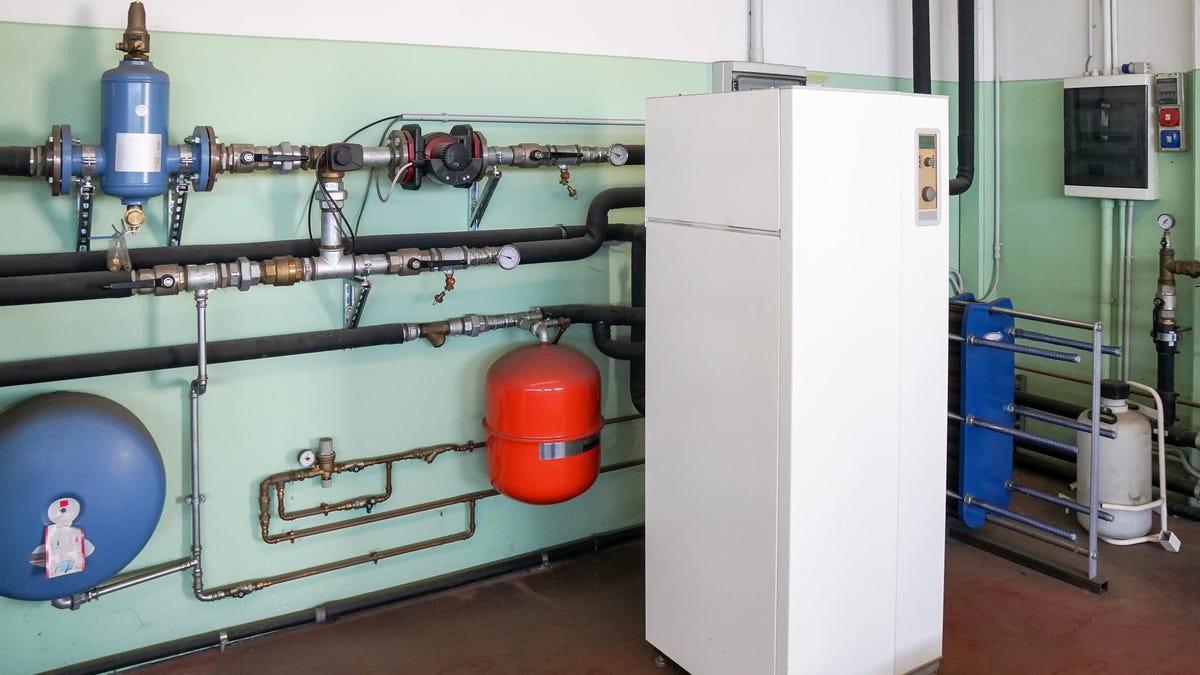Study Shows How Heat Pumps Can Help the Grid and Reduce Energy Costs
A US government report looked at the cost savings and grid effects of the mass installation of heat pumps. The result: lower energy bills.

The mass adoption of geothermal heat pumps could pay significant dividends for the grid, a new study shows.
Heat pumps are the hottest topic in the HVAC world these days. These efficient heating and cooling systems, powered by electricity, are a vital tool in reducing carbon emissions caused by the technology you use to make your home comfortable.
Home electrification means moving energy needs from natural gas and other fossil fuels to electricity. But a new US government study finds that the mass adoption of geothermal heat pumps, when combined with building efficiency changes, could actually cut electricity demand and reduce the need for costly grid improvements.
The study, produced by the Department of Energy's Oak Ridge National Laboratory, National Renewable Energy Laboratory and Geothermal Technologies Office, looked at scenarios involving retrofitting around 70% of buildings in the US with geothermal heat pumps, alongside building envelope improvements.
"Geothermal heat pumps offer enormous value for the nation's energy future," Alejandro Moreno, DOE's associate principal deputy assistant secretary for energy efficiency and renewable energy, said in a statement. "This report confirms that geothermal heat pumps are a ready-made strategy for decarbonizing our buildings while reducing the need for new electricity generation and transmission, and bringing energy savings to Americans nationwide -- all while creating US jobs."
Heat pumps can save money
The study looked at the cost savings of mass heat pump installations and efficiency changes and considered a variety of scenarios. If the grid were to continue to operate as it is today, the deployment of all those heat pumps could save more than $300 billion in grid costs. Other scenarios that envision more decarbonization of the grid show the improvements saving even more.
As for consumers, this transition could cut consumer spending on winter heating by $19 billion per year by 2050, the analysis found. And those savings aren't just for the homes getting heat pumps.
"Because less grid infrastructure investment is required with the large-scale deployment of [geothermal heat pumps], they could reduce the cost of power for all grid consumers -- even those who do not have the technology installed," the study said.
While the amount of electricity used in heating increases with the adoption of heat pumps, which provide both heating and cooling, two different types of energy savings more than offset that increase. The first comes from building envelope improvements -- things like better windows and doors, and better insulation. The second is that while heat pumps use more electricity than a gas-powered furnace would in the winter, they're also replacing less efficient air conditioners that run during the summer. That means over the course of the year, a geothermal heat pump is saving you electricity, even if it means a higher electric bill during the winter.
Should you consider a heat pump?
Heating is the biggest use of home energy, and as winter descends on the US, that's becoming apparent in utility bills nationwide. A heat pump changes the math on heating in a few ways: Your heating and cooling are now done more efficiently than before. And, both are handled by one device, rather than a separate furnace and air conditioner, possibly reducing maintenance costs. That device is all-electric, meaning no more natural gas or fuel oil to heat your home.
If you're thinking about replacing your existing furnace or air conditioner, a heat pump might be a good choice in the long run. In addition to saving money on energy, you can save money up front: Geothermal heat pumps are eligible for a 30% tax credit.
Geothermal heat pumps are a bit more expensive than air-source heat pumps. Geothermal heat pumps work by exchanging heat between your home and the ground, while air-source heat pumps do the same with the air outside. This makes geothermal heat pumps more efficient, but they're also far more complicated to install, because of the amount of digging required.

